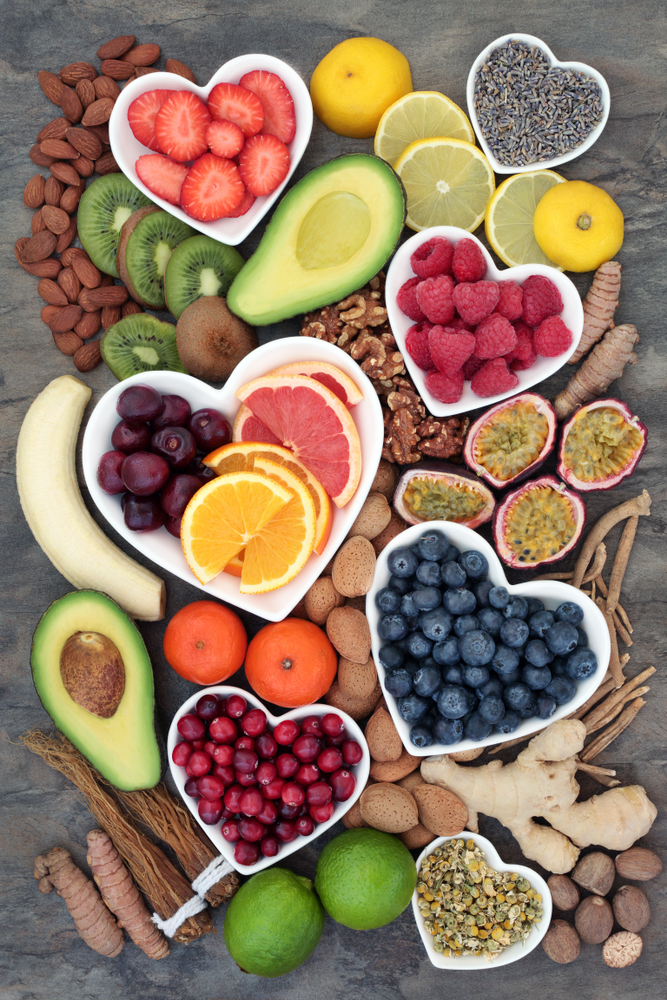Minerals that Benefit Blood Pressure
We touched on how various lifestyle modifications, following the DASH diet, and including nutrient dense foods can help lower blood pressure. But, do you know which minerals in our food play a role in maintaining a healthy blood pressure?
Sodium is one of the key minerals that should be monitored when it comes to blood pressure. There are three other important minerals to mention: calcium, magnesium, and potassium. These minerals, including sodium, are electrolytes and work with sodium to maintain fluid balance in the body and help arteries become more flexible.
- Calcium is needed to help blood vessels tighten and relax when needed. Low fat dairy is a component of the DASH diet for this reason. In addition to dairy products, calcium can be found in dark leafy greens, almonds, fortified non-dairy milks, and broccoli.
- Magnesium helps regulate a ton of body systems – blood pressure included! This mineral can be found in a variety of foods and deficiency is pretty rare. Good sources of magnesium to include in your diet are spinach, lentils, almonds, cashews, oatmeal, brown rice, pumpkin seeds, and high fiber cereals.
- Potassium is an important mineral for overall muscle function and it helps relax the walls of blood vessels. Foods that contain higher amounts of potassium include bananas, orange juice, potatoes, milk, yogurt, spinach, and tomatoes.
In addition to these minerals, there are other blood pressure lowering nutrients that we can add to our diet.
- Flavonoids are plant based compounds found in many fruits and vegetables. They have anti-inflammatory and antioxidant properties, which help regulate blood pressure. Some fruits and veggies rich in flavonoids include, apples, blueberries, celery, bananas, and tomatoes. In addition, you can find flavonoids in tea, cocoa, quinoa, and almonds.
- Soy protein can be found in tofu, tempeh, edamame, and seitan. This plant based protein tends to be lower in saturated fat compared to other animal proteins, which benefits our blood pressure, cholesterol, and heart health. Soy foods also contain flavonoids and other blood pressure lowing nutrients. Add soy protein to your diet with soy nut butter, some veggie burgers, soymilk, or any of the plant based protein options listed.
- Omega 3 polyunsaturated fatty acids have been shown to help lower blood pressure and have overall heart health benefits. These fatty acids are called essential fatty acids, because our bodies cannot make them on their own, so we must obtain omega 3s through food. Add fatty fish like salmon, tuna, or trout, flaxseed, walnuts, and chia seeds to your meals for a healthy dose of omega 3s.


